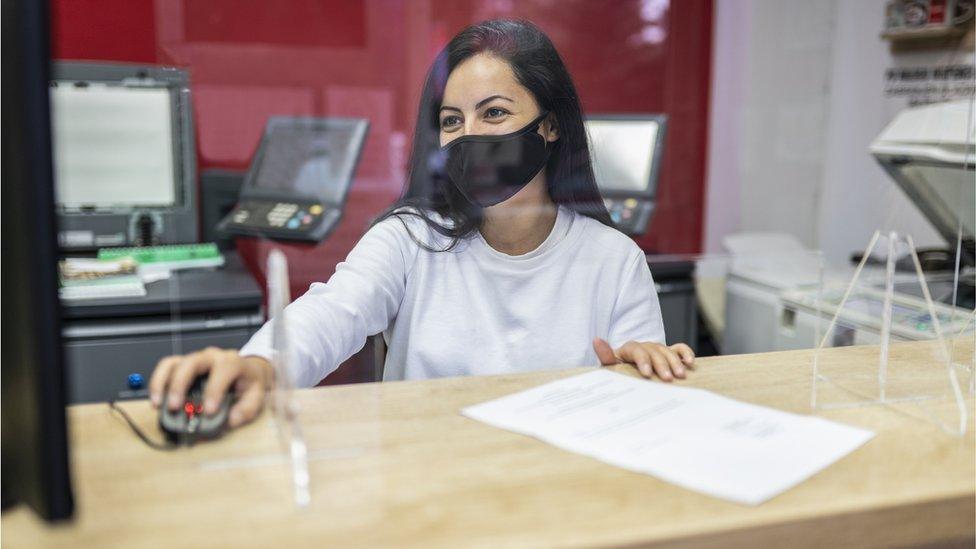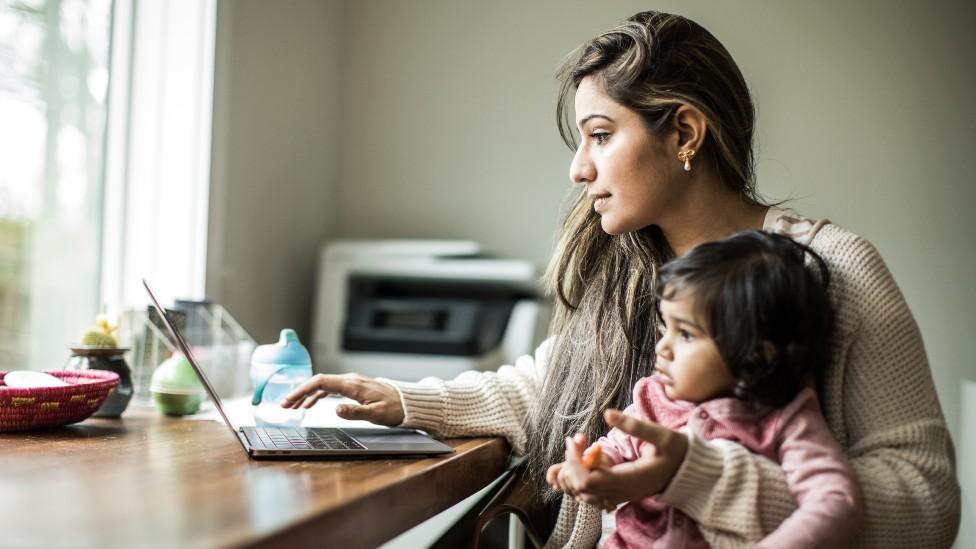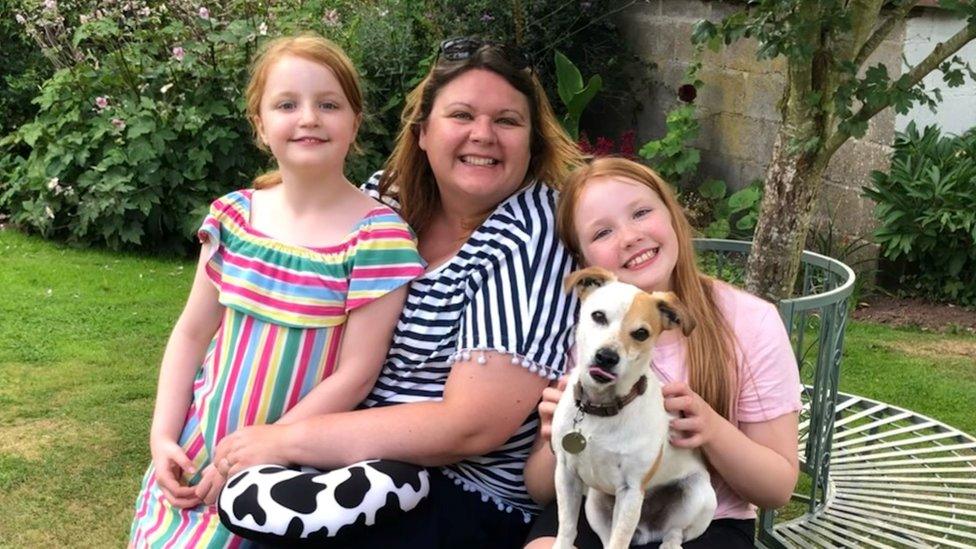'Looking for part-time jobs is soul-destroying'
- Published

Emma Sahota, a mum of three, has found it very difficult to get part-time work, even with decades of experience.
She was made redundant last year before going on maternity leave, and was due to start a new job when the coronavirus crisis hit.
With employers cutting hundreds of thousands of jobs due to the pandemic, competition for work is fierce.
And advertised part-time roles aren't keeping pace with the flexible way people want to work, research suggests.
The total number of people in employment dropped by about half a million, external from the three months before the crisis to the three months to September, according to the Office for National Statistics.
The percentage of those in part time work stayed around the same, falling from about 26% to 25% of the total - so that's about 8.1 million people in part time work in the UK. Of those people, about six million are women.
Along with the competition, one of the main problems for people looking for part-time work is that employers have not shifted recruitment practices to keep pace with the changes in working brought about by the pandemic, according to Timewise, which campaigns for flexible working.
Timewise looked at more than six million job vacancies between December 2019 and October 2020, and found that despite there being a huge change in the way that many people work, about four out of five job vacancies make no mention of flexible working options.
There was a modest increase in job adverts mentioning flexible working, up from 17% the previous year to 22% in 2020.
However, this did not keep pace with a huge increase in the number of people working from home, which rose from just 6% to 43% in late March, before dropping to 37% by June, according to a study by the Wales Institute of Social and Economic Research, external.
'I felt really frustrated'
Emma, who is 38, is pregnant and has three young children. She is also helping to look after her elderly mother-in-law, who is shielding due to the pandemic.
After her new job didn't materialise in March, Emma initially felt "very positive" about finding more work, due to her experience in the corporate world of digital marketing.
"I started off very confident - I felt the world was my oyster," she said.
But as the months wore on, every time she lined up a role, the opportunities would fold or be postponed.
"I felt really frustrated about what was available," she said. "Applying for another job on LinkedIn was just soul-destroying."
'I'm desperate for part-time work'
Some women are finding it very difficult to make ends meet. Sarah Peters - this is not her real name, she did not want to be identified - is a single mother of four school-age children.
She lost her part-time job in a local school and is struggling to get another position that means she can look after the kids.
"I'm desperate to have something part-time as I'm literally the only adult in the house," she said.
"One of my children has special needs so working full time really isn't an option, we have so many appointments to attend and I really need to be around for all of the kids when they get home from school."
"When I look for jobs and see barely anything there, and virtually nothing flexible, it makes me feel really disheartened and panicked that I am not going to find anything at all."

'Employers should look forward, not back'
Timewise chief executive Emma Stewart said that the problem is that there has been a "seismic shift" in how we work in the UK, but that hasn't filtered through to recruitment.
The lack of advertised flexible and part-time positions is disproportionately hitting women, carers, the elderly, and the low-paid in sectors such as hospitality and retail, Ms Stewart said.
The danger is that people who can't take on full-time positions "are going to get stuck out of work for a long time," she said.
Companies taking on more part-time staff would give them a more diverse workforce, and they would get efficiency gains from a more engaged, productive workforce, she said.
The coronavirus crisis has shaken up the world of work, and firms have an opportunity to rethink their hiring practices, Ms Stewart added.
"We've got to look forward, not back," she said.

The Government Equalities Office said that employers should "seek to increase opportunities for everyone in this country."
Minister for Women Baroness Berridge said: "The benefits of flexible working have really been emphasised during recent months. We want to see more employers embracing practices such as working from home and returners programmes, which can have a positive impact for both men and women."
For Emma Sahota, making ends meet while still looking for work became increasingly challenging.
Her husband is self-employed in a construction firm, but his work too has been hit by coronavirus lockdowns and restrictions.
Going down to having one income has meant some careful planning to pay the bills.
But rather than keep applying for jobs online - and hearing nothing back - Emma decided to set up her own digital marketing company, Soh Digital. She says she's now using her experience and contacts to pick up work that can be done when it suits her.
- Published16 November 2021

- Published17 November 2020
